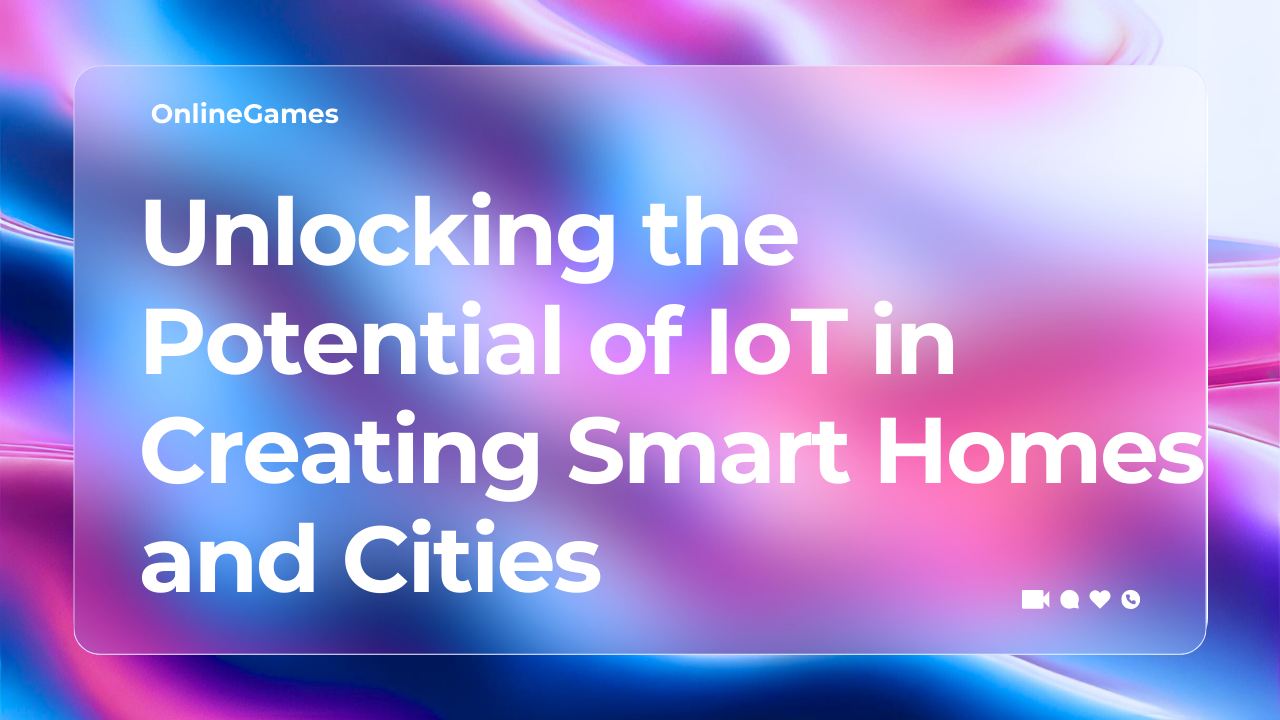In the realm of urbanization and technological advancement, the Internet of Things (IoT) has emerged as a transformative force, particularly in the creation of smart homes and cities. This revolutionary technology integrates everyday objects with internet connectivity and data processing capabilities, enabling them to collect, exchange, and utilize data to improve efficiency, convenience, and sustainability across various facets of urban living.
The Foundation of Smart Homes: IoT Integration
At the heart of the smart home concept lies the seamless integration of IoT-enabled devices into the fabric of daily life. These devices, ranging from smart thermostats and lighting systems to security cameras and home assistants, imbue traditional household items with intelligence and connectivity. For instance, a smart thermostat not only regulates indoor temperature but also learns user preferences and adjusts settings automatically for optimal comfort and energy efficiency. Similarly, smart lighting systems can be controlled remotely via smartphone apps, allowing users to customize lighting schemes and monitor energy usage in real time.
Enhancing Quality of Life Through IoT
IoT technology enhances the quality of life in smart homes by streamlining routine tasks and providing unprecedented levels of convenience. Imagine waking up to a home that adjusts its lighting and temperature to match your preferences automatically. Throughout the day, IoT-enabled appliances communicate with each other to optimize energy consumption, ensuring minimal waste while maximizing comfort and convenience for occupants. Moreover, smart home devices contribute to enhanced safety and security, with features like remote monitoring and alerts that provide peace of mind to homeowners, even when they are away.
IoT in Urban Planning: Shaping Smart Cities
Beyond individual homes, IoT plays a pivotal role in the evolution of smart cities, where interconnected devices and infrastructure work synergistically to improve urban efficiency and sustainability. One of the hallmarks of a smart city is its ability to leverage IoT for urban mobility, energy management, public safety, and environmental sustainability. For instance, IoT-enabled sensors embedded in transportation networks can gather real-time data on traffic patterns, allowing for dynamic adjustments to traffic signals and routes to alleviate congestion and reduce travel times. Similarly, smart grids optimize energy distribution and consumption, integrating renewable energy sources to promote environmental sustainability and resilience against power outages.
Sustainability and Efficiency Through IoT
The integration of IoT in smart cities also fosters environmental sustainability by optimizing resource usage and reducing carbon footprints. Smart waste management systems equipped with sensors monitor waste levels in real time, enabling more efficient collection routes and schedules. Additionally, IoT-driven water management systems detect leaks and track usage patterns, facilitating proactive maintenance and conservation efforts. These initiatives not only enhance operational efficiency but also contribute to the overall well-being of urban residents by promoting cleaner and healthier environments.
Addressing Challenges and Expanding Possibilities
While IoT presents immense opportunities for innovation and efficiency in smart homes and cities, it also poses challenges related to data privacy, cybersecurity, and interoperability. Addressing these challenges requires robust frameworks for data protection, secure communication protocols, and standardized IoT platforms that facilitate seamless integration and interoperability across diverse devices and systems.
Looking ahead, the potential of IoT in creating smart homes and cities continues to expand as technological advancements and consumer demand drive innovation. From enhancing convenience and sustainability to improving safety and economic resilience, IoT-enabled solutions are poised to redefine urban living and pave the way for a more connected and sustainable future.






